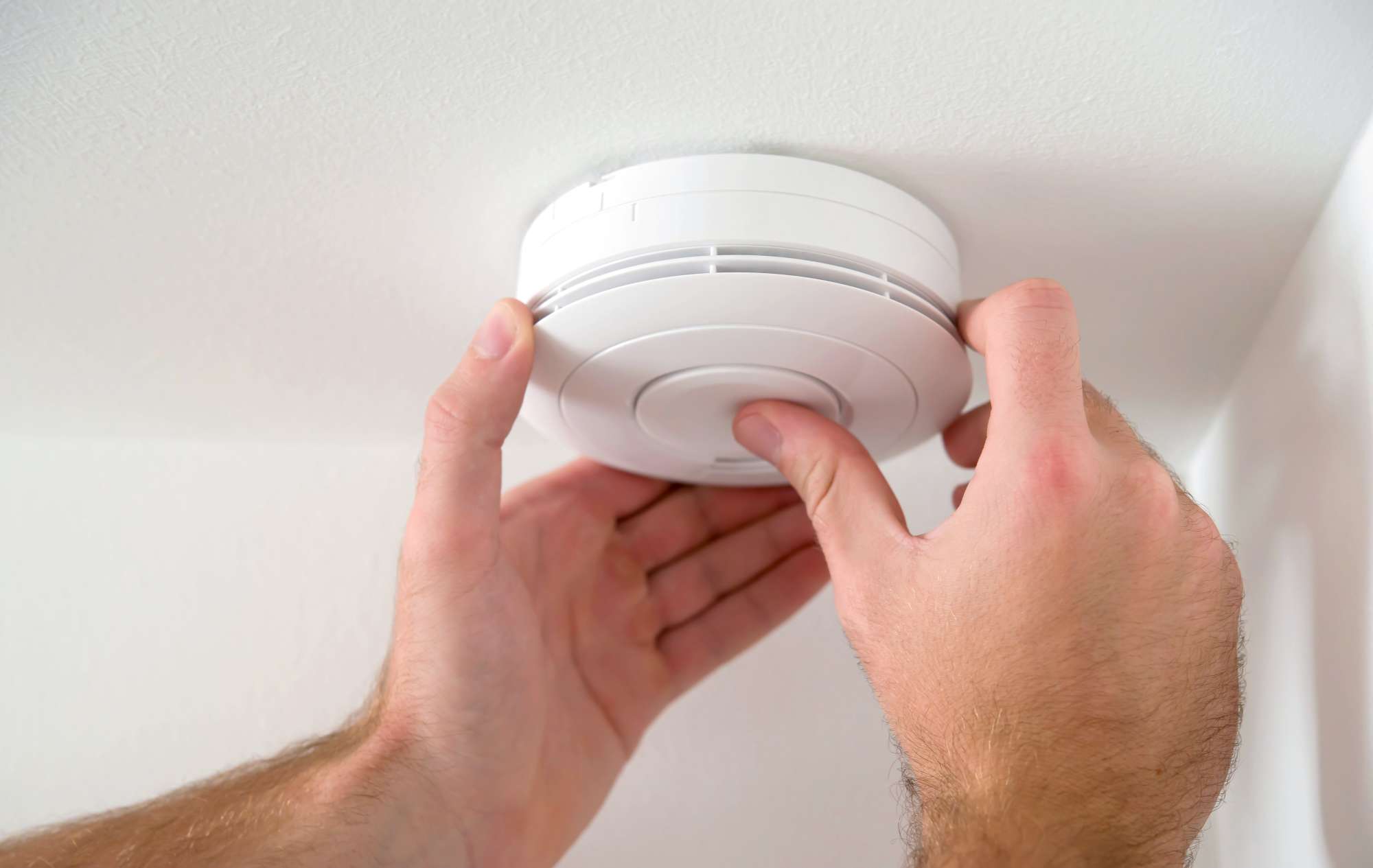It’s a frustrating moment when you’re stepping out of the shower, only to be startled by the sound of your smoke alarm going off. If this happens regularly, you might wonder whether it’s a malfunction or just an inevitable part of having a bathroom near a smoke detector. In this article, we’ll explain why your smoke alarm goes off after shower and provide practical solutions to prevent it from happening. By understanding the causes and taking appropriate action, you can ensure your smoke alarm only goes off in emergencies, keeping your home safe without unnecessary disruptions.
Common Causes of Smoke Alarm Going Off After a Shower
There are several reasons why a smoke alarm might go off after a shower. Understanding the underlying causes can help you fix the issue and stop the false alarms.
1. Steam and Humidity Triggering the Smoke Detector
The most common cause for smoke alarms going off after a shower is steam. Smoke detectors, especially ionization alarms, are highly sensitive to particles in the air. Steam from the hot water can mimic the particles associated with smoke, triggering the alarm.
- Ionization Smoke Detectors: These alarms use a small amount of radioactive material to detect changes in the ionization of the air. Steam can cause the air to become less ionized, triggering the alarm.
- Photoelectric Smoke Detectors: These are typically more resistant to false alarms caused by steam. However, they can still be affected by high humidity levels if the air is thick with moisture.
2. Poor Ventilation in the Bathroom
If your bathroom lacks proper ventilation, the steam from your shower won’t have a way to escape, leading to increased humidity levels. This makes it more likely that the smoke alarm will be triggered.
- Exhaust Fans: An exhaust fan that isn’t working well can allow moisture to build up in the air. This will increase the chances of false alarms.
- Open Windows: If you don’t have an exhaust fan, opening a window can help the steam escape.
3. Proximity of the Smoke Detector to the Bathroom
If the smoke detector is located too close to the bathroom or shower, it may be more likely to pick up the steam. Smoke detectors should be installed at least 10 feet away from bathrooms to avoid this issue.
- Code Requirements: Many building codes recommend placing smoke alarms away from humidity sources, like bathrooms or kitchens, to reduce the chances of false alarms.
4. A Dirty or Malfunctioning Smoke Detector
Dirt, dust, or cobwebs in the smoke detector can interfere with its sensor, making it more sensitive to steam or humidity. Regular maintenance is essential to keep the sensor functioning properly.
- Cleaning: Smoke alarms should be cleaned regularly with a vacuum cleaner or soft brush to remove dust and debris.
- Battery Issues: If the battery is running low or there’s a fault in the wiring, the alarm may go off unexpectedly. Make sure to check and replace batteries regularly.
How to Prevent Your Smoke Alarm from Going Off After a Shower
Now that you understand the causes of false alarms, here are some practical solutions to stop your smoke alarm from going off after a shower:
1. Improve Bathroom Ventilation
Increasing the ventilation in your bathroom will help reduce the amount of steam that accumulates in the air, preventing your smoke alarm from being triggered.
- Install an Exhaust Fan: If you don’t already have one, consider installing an exhaust fan. This will help direct steam outside of the bathroom.
- Open Windows: If possible, open a window while you shower to help steam escape.
- Use a Dehumidifier: In particularly humid areas, using a dehumidifier can help keep moisture levels in check.
2. Move the Smoke Detector
If the smoke alarm is located too close to your bathroom, consider moving it to a more appropriate spot. It’s typically recommended to place smoke detectors at least 10 feet away from bathrooms.
- Proper Placement: Make sure the smoke detector is installed on the ceiling in the center of a hallway or room, away from steam and cooking areas.
- Consult a Professional: If you’re unsure about the best location, consider hiring a professional to reinstall the alarm in a more optimal location.
3. Upgrade to a Photoelectric Smoke Detector
Photoelectric smoke detectors are generally less sensitive to steam than ionization detectors. If your smoke alarm is the ionization type, it may be worth switching to a photoelectric model to reduce false alarms.
- Less Prone to Steam: Photoelectric alarms work by detecting light scattering caused by smoke, which makes them less prone to false alarms from steam.
- Long-Term Investment: Though photoelectric alarms may be more expensive upfront, they are a more reliable option for homes with bathrooms near the smoke detectors.
4. Regular Maintenance and Cleaning
Ensure that your smoke alarm is in good working order by cleaning it regularly and checking the batteries.
- Clean the Sensor: Use a vacuum cleaner with a soft brush attachment to gently remove dust and debris from the smoke detector.
- Replace the Batteries: Smoke detectors should have their batteries replaced at least once a year, even if they aren’t emitting low-battery warnings.
When to Call a Professional
If you’ve tried all of the above methods and your smoke alarm still goes off after showers, it might be time to call a professional. Here’s when you should consider getting help:
1. Persistent Malfunctions
If your smoke alarm continues to trigger even after improving ventilation, relocating the unit, and cleaning it, there could be an issue with the wiring or the unit itself. A professional can check for any internal malfunctions or electrical problems.
2. Upgrading the System
If you want to upgrade your smoke alarm system to include photoelectric alarms or other advanced safety measures, a licensed electrician can help with installation and placement to ensure optimal coverage.
3. Safety Concerns
If you have any concerns about the safety of your smoke detection system, it’s always a good idea to have a professional inspect the setup. Ensuring your smoke detectors are correctly installed and fully operational can save lives in the event of a fire.
Conclusion
A smoke alarm going off after a shower can be an annoying but solvable problem. By understanding the causes—such as steam, poor ventilation, or a malfunctioning detector—you can take steps to prevent it. Improving ventilation, relocating the alarm, upgrading to a photoelectric detector, and performing regular maintenance are all effective solutions to minimize false alarms. If the problem persists, don’t hesitate to consult a professional to ensure your smoke detection system is working properly.




